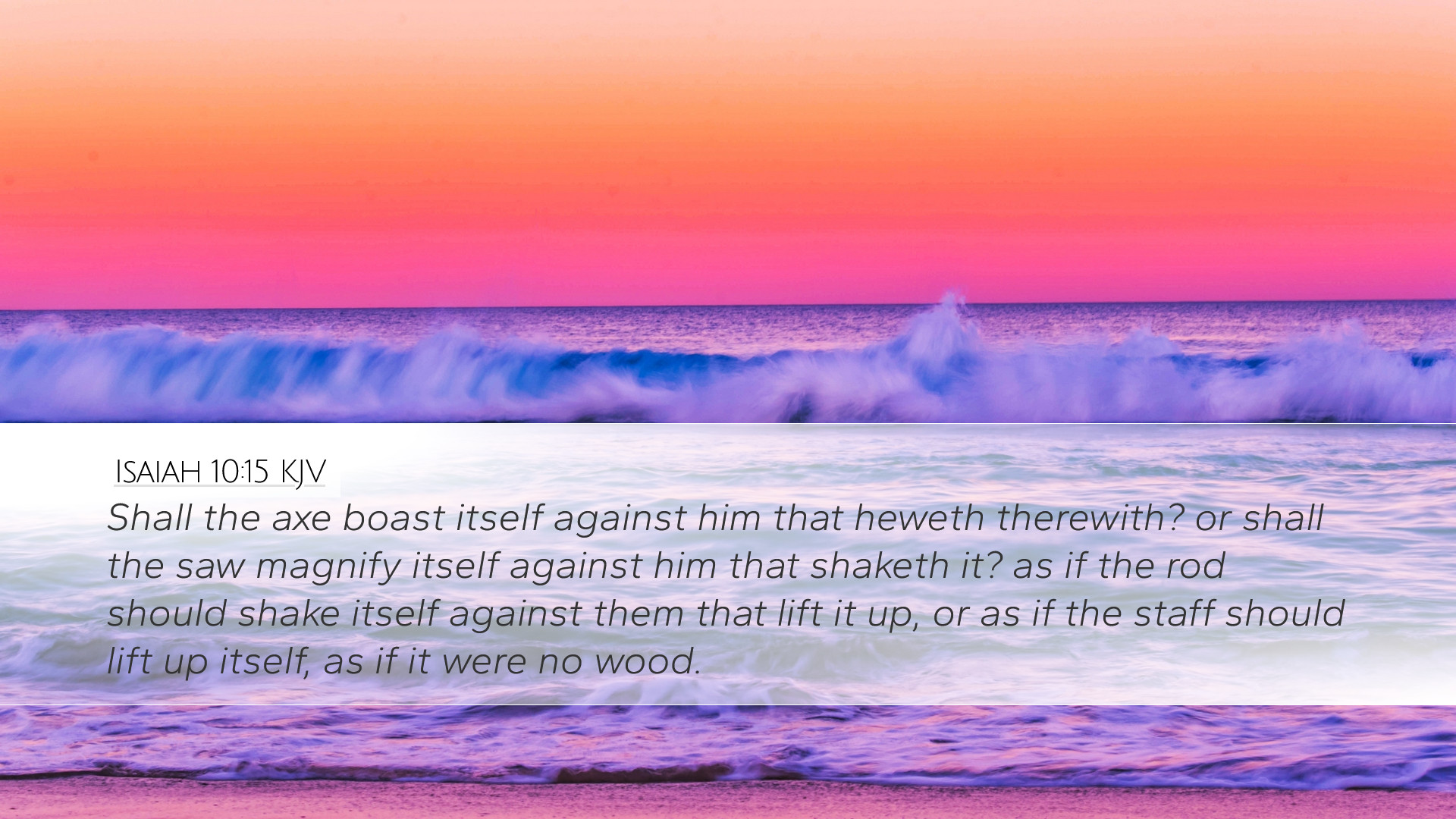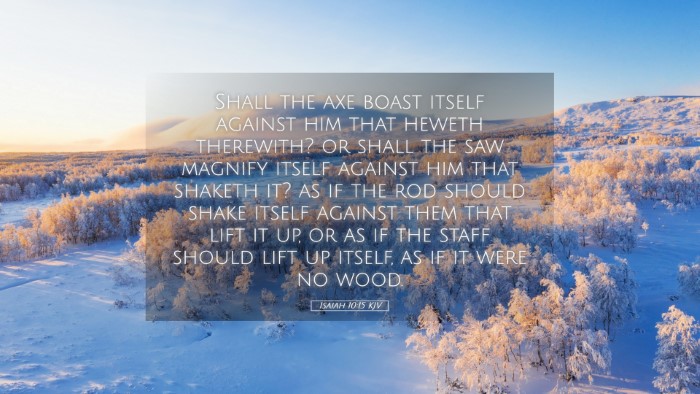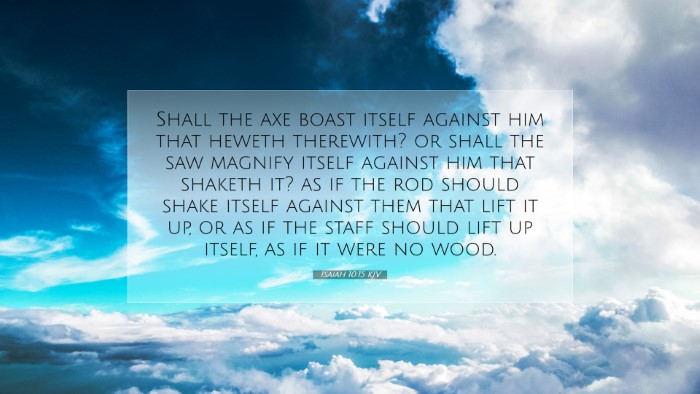Commentary on Isaiah 10:15
Isaiah 10:15 states, "Shall the axe boast itself against him who chops with it? Or shall the saw exalt itself against him who wields it? As if a rod could wield itself against those who lift it up, or as if a staff could lift up itself! Is it not the staff of wood?" This verse serves as a profound illustration of God's sovereignty over nations and instruments of judgment, emphasizing that tools cannot boast of their effectiveness, for they are merely instruments in the hands of a master.
Contextual Overview
This verse is situated within a prophecy against Assyria, which had become a tool in God's hands for executing judgment upon Israel and Judah. However, the Assyrian nation, in its arrogance, began to see itself as the source of its own power and success. The use of metaphors such as an "axe" and a "saw" highlights the foolishness of such self-exaltation.
Insights from Public Domain Commentaries
Matthew Henry's Commentary
Matthew Henry emphasizes the absurdity of an instrument boasting against its wielder. He notes that the Assyrians, embodied as the axe, were merely a means of executing God's divine will. Henry articulates that God's sovereignty must not be overlooked; the nations of the earth are seen as instruments utilized for His purposes. Hence, their pride is misplaced because the real power lies with God, who directs those instruments as He sees fit.
Albert Barnes' Notes on the Bible
Albert Barnes expands on the idea of the Assyrians’ pride and self-importance. He explains that just as an axe cannot claim superiority over the one who uses it, so too can the proud nations not lay claim to their successes. Barnes describes the rhetorical nature of the question posed in this verse, which serves to remind readers of the distinction between the creator and the created. He suggests that the passage challenges the arrogance of human beings who fail to recognize their dependent position before God.
Adam Clarke's Commentary
Adam Clarke applies a critical lens to this passage, exploring the figurative language used by Isaiah. Clarke points out that the implication of the "rod" and "staff" further emphasizes that these instruments serve a purpose dictated entirely by God’s authority. He notes that when nations (like Assyria) forget their position as mere tools in the service of divine judgment, they risk judgment against themselves. Clarke’s insights offer a pastoral application as he encourages us to recognize our own positions before God.
Theological Implications
This verse raises significant theological concerns about pride, sovereignty, and the nature of power. It illustrates a core principle in biblical theology: while God uses certain nations or individuals for His purposes, those instruments must not presume to usurp God's authority or take credit for His plans.
- Sovereignty of God: The verse enhances understanding of God's sovereignty, confirming that all things operate under His dominion.
- Human Arrogance: It addresses human arrogance and the tendency to glorify oneself instead of recognizing the Source of one’s abilities.
- Instruments of Judgment: It outlines how God can use any nation or individual as He sees fit—including those who may be antagonistic to His people.
Practical Applications
For pastors and theologians, there are critical lessons to draw from Isaiah 10:15:
- Humility: It serves as a reminder of the necessity of humility before God, acknowledging our roles as His creations rather than elevating ourselves.
- Recognition of God’s Role in History: Understanding God’s hand in historical events can lead to a more profound sense of trust in His plans, even amidst chaos.
- Warning against Pride: This scripture can be used as a cautionary tale against pride, both in individual lives and in the collective heart of nations.
Conclusion
Isaiah 10:15 serves as a potent reminder that power is fleeting, and those in authority are to remain aware of their place in God’s grand narrative. The metaphorical language used by the prophet powerfully illustrates the folly of pride and the ultimate reality of God's sovereignty. As we reflect on this passage, may we find our true strength and identity not in our own abilities or status, but firmly anchored in the knowledge of our dependence on the Almighty God.


